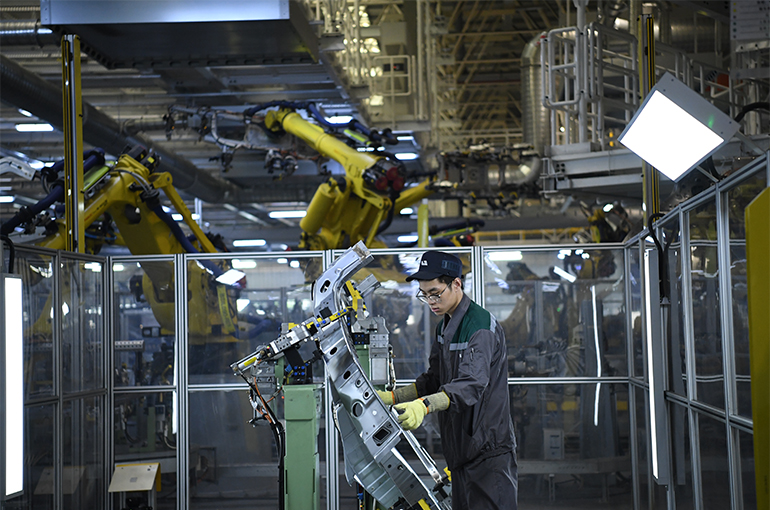 China’s Auto Price War Is Squeezing Out Small Suppliers
China’s Auto Price War Is Squeezing Out Small Suppliers(Yicai) July 30 -- The price competition in China's auto market, the world’s biggest, is negatively impacting parts makers, forcing small manufacturers to let go staff or even close due to unreasonable requests for discounts and longer billing cycles.
The local factories of large parts makers, including foreign companies such as Bosch, ZF Friedrichshafen, and Continental, have been laying off staff in eastern China since May, while some small suppliers in the region have shut up shop entirely, Yicai learned during visits to the plants over the past few weeks.
A Chinese firm that supplies parts to two local joint venture automakers has been unprofitable since the year began due to low orders, an insider said. The firm plans to stop production at some workshops in early August, and start to downsize its workforce to about 200 from over 300. Without new orders, the state of more than 10 suppliers that outsource certain production processes to the firm is worse since they have already shut down, the person added.
At the same time, the clients of automakers are pushing for more discounts from suppliers, as the price war among them has intensified.
Suppliers are usually asked to cut prices only once a year, but this year they are being asked to adjust prices once a quarter, according to a senior executive at a large supplier to a leading domestic carmaker.
The company has not yet reached an agreement with its customer about the applicable prices in the second quarter despite already fulfilling all the orders, the executive said. The client wants a 20 percent discount this year, while the firm’s profit margin is generally just slightly over 10 percent, resulting in tough talks, he added.
Normally, carmakers approach suppliers late in the year to ask for further reductions of 3 percent to 5 percent for the coming year, but now they are asking whenever they feel the need, a sales leader at a smart antenna supplier said.
Except for a few companies with high technical barriers and bargaining power, most parts suppliers often hear their clients say the same thing: "This is the price we ask. If you do not accept it, someone else will," the executive said.
Automotive clients also have other ways to squeeze their suppliers. A source at a structural parts firm told Yicai that they were asked to present product designs to the carmaker in the bidding process, but the car firm quickly sent the design to other suppliers to copy without the consent of the original developer, forcing it to cut its prices further and accept a smaller deal. Other makers of structural parts have also publicly complained about similar practices.
Long Payment Cycles
It also takes a long time to get paid. The senior executive said that his firm’s client used to pay in three months but has now extended that to nine months, which ramps up the financial strain on the company. Some carmakers have even threatened their suppliers with not paying, if they do not receive discounts on future prices, he added.
Carmakers often pay in six to 12 months so suppliers must bear the heavy burden of production costs first. Some cannot get any advance payment from their customers, Yicai learned from several companies. Under such circumstances, smaller suppliers with weaker financial strength are at risk of being "dragged under."
The price war has driven carmakers to push down component prices unreasonably, which affects industrywide profitability, according to an executive at a listed parts enterprise. In addition, sales of new models, all models even, becomes even more uncertain amid the fierce competition, resulting in higher risks, the person added.
But strong exports, electrification, and the trend of smart cars still resulted in better earnings among components suppliers. Twenty-nine of 50 firm that had updated their first-half expectations as of July 11 expected improved results. Of them, 14 expected the increase in their net profit to exceed 100 percent for the six months ended June 30.
Auto parts companies with a large share of overseas business can use those revenues to make up for their losses on the home turf to a certain extent, an executive at a leading parts supplier told Yicai. In addition, the demand for electric and intelligent vehicle parts is growing, which can partly offset cost pressures for firms in those segments too, the person added.
Editors: Tang Shihua, Emmi Laine